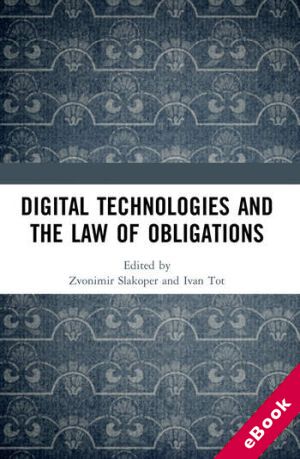
The device(s) you use to access the eBook content must be authorized with an Adobe ID before you download the product otherwise it will fail to register correctly.
For further information see https://www.wildy.com/ebook-formats
Once the order is confirmed an automated e-mail will be sent to you to allow you to download the eBook.
All eBooks are supplied firm sale and cannot be returned. If you believe there is a fault with your eBook then contact us on ebooks@wildy.com and we will help in resolving the issue. This does not affect your statutory rights.
Digital Technologies and the Law of Obligations critically examines the emergence of new digital technologies and the challenges they pose to the traditional law of obligations, and discusses the extent to which existing contract and tort law rules and doctrines are equipped to meet these new challenges.
This book covers various contract and tort law issues raised by emerging technologies – including distributed ledger technology, blockchain-based smart contracts, and artificial intelligence – as well as by the evolution of the internet into a participative web fuelled by user-generated content, and by the rise of the modern-day collaborative economy facilitated by digital technologies. Chapters address these topics from the perspective of both the common law and the civil law tradition. While mostly focused on the current state of affairs and recent debates and initiatives within the European Union regulatory framework, contributors also discuss the central themes from the perspective of the national law of obligations, examining the adaptability of existing legal doctrines to contemporary challenges, addressing the occasional legislative attempts to deal with the private law aspects of these challenges, and pointing to issues where legislative interventions would be most welcomed. Case studies are drawn from the United States, Singapore, and other parts of the common law world.
Digital Technologies and the Law of Obligations will be of interest to legal scholars and researchers in the fields of contract law, tort law, and digital law, as well as to legal practitioners and members of law reform bodies.